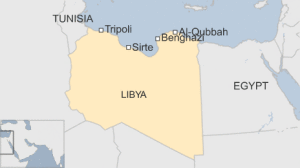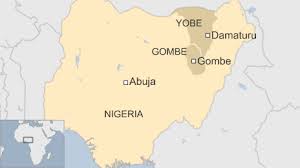By Ashley Repp
News Desk Reporter- Africa
al-Qubbah- Libya
Earlier this week, following the release of a gruesome video that showed the beheading of 20 Egyptian Coptic Christians, and one non-Christian, Egypt launched air strikes in and near the city of Derna. The strikes targeted training camps and arms caches in the city. Groups affiliated with the Islamic State (ISIL) have claimed responsibility for the video, and called the beheaded Coptic Christians, ‘crusaders.’
Following these are strikes, Islamic State affiliate groups vowed revenge for the attacks on Derna. On Friday, Islamic State affiliate groups carried out a triple attack on the eastern city of al-Qubbah. One of the apparent targets of the attack was the parliament speaker of the internationally recognized parliament of Libya, Aguila Salah. Medical personnel assert that Salah was not home at the time of the attack. The two other bombings in the triple strike included a police station, as well as a gas station. The majority of those killed in these attacks were waiting in line at the gas station. Over 30 people have died, although a source quoted by Reuters asserts that the death toll is nearer to 40 and over 70 injured.
Libya plunged into chaos following the ousting of Col. Moammar Kadafi in 2011. Since that time, factions have waged war with one another in an effort to gain control over Libya. No one group has gained significant traction. ISIL has sought to capitalize on the instability and violence that currently racks Libya, in an effort to gain traction in Africa. While it is not a group that currently predominates in Libya, recent events have begun to establish the Islamic State as a very real actor in the game in Libya. Egypt has become increasingly alarmed by the rate at which the Islamic State has been gaining support in Libya, as Egypt is currently fighting another Islamic State affiliate group in the Sinai Peninsula.
For more information, please visit:
ABC News- Triple bombings kill at least 25 in eastern Libya, medics say– 20 Feb., 2015
Al Jazeera- Deaths in car bombings in east Libya city– 20 Feb., 2015
LA Times- Bomb attacks in Libya kill at least 34– 20 Feb., 2015
BBC News- Libya Violence: Bombs kill dozens in al-Qubbah– 20 Feb., 2015



